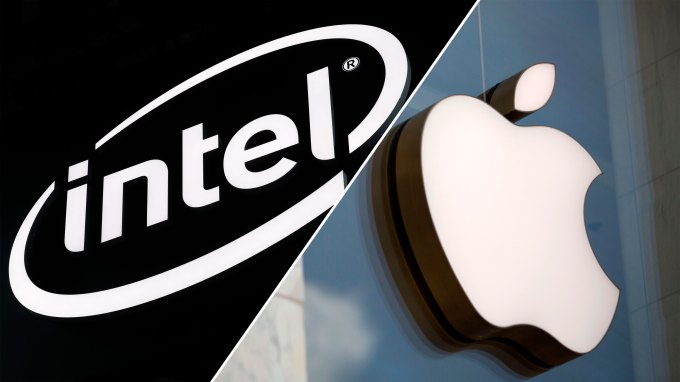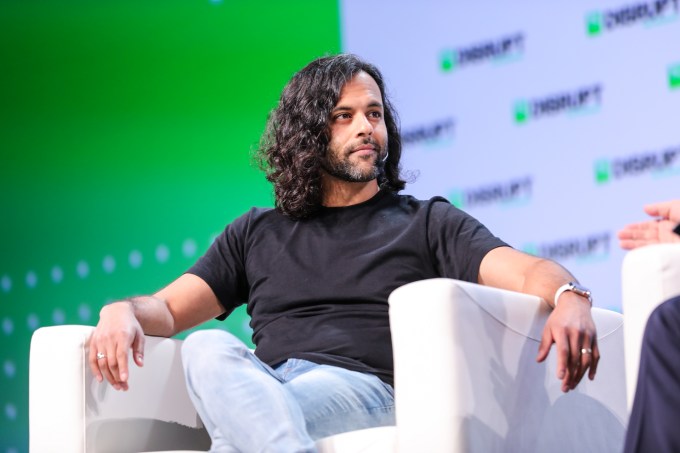Hello, weekenders. This is Week-in-Review, where I give a heavy amount of analysis and/or rambling thoughts on one story while scouring the rest of the hundreds of stories that emerged on TechCrunch this week to surface my favorites for your reading pleasure.
Last week, I talked about how services like Instagram had moved beyond letting their algorithms take over the curation process as they tested minimizing key user metrics such as “like” counts on the platform.

John Taggart/Bloomberg via Getty Images
The big story
The big news stories this week intimately involved the government poking its head into the tech industry. What was clear between the two biggest stories, the DoJ approving the Sprint/T-Mobile merger and the FTC giving Facebook a $5 billion slap on the wrist, is that big tech has little to worry about its inertia being contained.
It seems the argument from Spring and T-Mobile that it was better to have three big telecom companies in the U.S. rather than two contenders and two pretenders, seems to have stuck. Similarly, Facebook seems to have done a worthy job of indicating that it will handle the complicated privacy stuff but that they’ll let the government orgs see what they’re up to.
Fundamentally, none of these orgs seem to want to harm the growth of these American tech companies and I have a tough time believing that perspective is going to magically get more toothy in some of these early antitrust investigations. The government might be making a more concerted effort to understand how these businesses are structured, but even focusing solely on something like the cloud businesses of Microsoft, Google and Amazon, I have little doubt that the government is going to spend an awfully long time in the observation phase.
The danger is erraticism and for that the worst government fear for tech isn’t a three-letter agency, it’s the Twitter ramblings of POTUS.
feedback -> @lucasmtny
Onto the rest of the week’s news.

(Photo: ALASTAIR PIKE,THOMAS SAMSON/AFP/Getty Images)
Trends of the week
Here are a few big news items from big companies, with green links to all the sweet, sweet added context:
- Apple dropping $1 billion on Intel’s modem business
Apple is snapping up a missing link in its in-house component production with the $1B purchase of most of Intel’s modem business. This follows a dramatic saga between Intel, Qualcomm and Apple over the past year, but Apple will be making its own smartphone modems the question is when they actually end up in new iPhones. Read more here. - Microsoft dropping $1 billion on OpenAI
Microsoft announced this week that it is dumping $1 billion into Sam Altman’s OpenAI research group. The partnership is pretty major, but it’s just one of the interesting avenues Microsoft is using to ensure its Azure services gain notable customers. Read more here. - Galaxy Fold is coming back!
After a very embarrassing soft launch, Samsung which managed to make it a several devices beyond the Note 7 before another garbage fire is trying its hand at the Galaxy Fold again and will be releasing it sometime in September. It seems like the carriers are a little dubious of the prospect and T-Mobile has already opted out of carrying it. Read more here.
GAFA Gaffes [Facebook Edition!!]
How did the top tech companies screw up this week? This clearly needs its own section, in order of badness:
- Facebook gets five:
[Facebook settles with FTC: $5 billion and new privacy guarantees] - FTC isn’t quite done with Facebook:
[Facebook says it’s under antitrust investigation by the FTC] - Facebook dismissed CA warnings:
[Facebook ignored staff warnings about sketchy Cambridge Analytica in September 2015] - Facebook left kids vulnerable:
[Facebook fails to keep Messenger Kids safety promise]

Extra Crunch
Our premium subscription service had another week of interesting deep dives. This week, my colleague Danny spoke with some top VCs about why fintech startups have been raising massive amounts of cash and he seemed to walk away with some interesting impressions.
Why fintech VC mega rounds have become so common
“…The biggest challenge that has faced fintech companies for years — really, the industry’s consistent Achilles’ heel — is the cost of acquiring a customer. Financial customer relationships are incredibly valuable, and the cost of acquiring a user for any product is among the most expensive in every major channel.
And those costs are going up…”
Here are some of our other top reads for premium subscribers.
- The roles tools play in employee engagement
- Which types of startups are most often profitable
- What to watch for in a VC term sheet
We’re excited to announce The Station, a new TechCrunch newsletter all about mobility. Each week, in addition to curating the biggest transportation news, Kirsten Korosec will provide analysis, original reporting and insider tips. Sign up here to get The Station in your inbox beginning in August.

Comments
Post a Comment